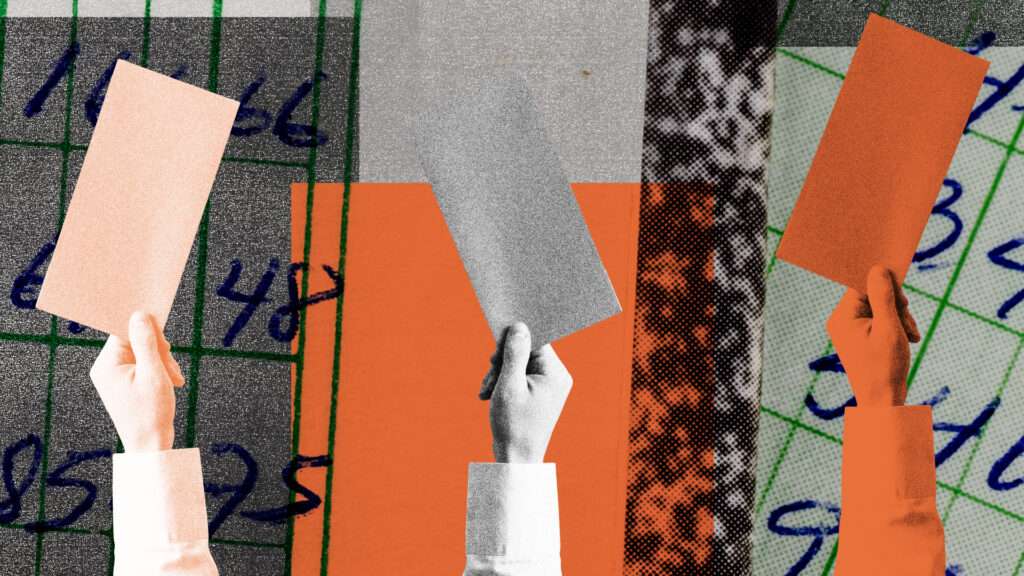Many voters find the traditional voting process disheartening, where they wait in long lines to cast a ballot for a candidate they may not even like. Ranked choice voting offers a potential solution by allowing voters to rank candidates in order of preference. This system ensures that candidates with majoritarian support are elected and allows for more diverse choices without fear of splitting the vote.
The upcoming November elections will feature several states, including Colorado, considering the adoption of ranked choice voting. In Colorado, Proposition 131 aims to implement ranked choice voting statewide for various offices, replacing party primaries with an all-candidate primary election. The measure has garnered support from Governor Jared Polis while facing opposition from figures like Rep. Lauren Boebert and the Colorado Democratic Party.
In Idaho, Proposition 1 seeks to abolish party primaries and introduce a top-four primary system followed by a ranked choice general election. Supporters argue that closed primaries exclude independent voters and limit participation in the electoral process. Former Governor Butch Otter endorses the measure, while Republican Party Chairwoman Dorothy Moon opposes it.
Nevada Question 3 proposes amending the state constitution to allow all voters to participate in open primary elections and rank the top five candidates for each office. Currently, Nevada uses closed primaries, restricting participation to party members only. The measure aims to increase voter engagement and ensure a fairer electoral process.
Question 3 proposes to eliminate party primaries and implement a ranked choice ballot to require candidates to achieve a majority to win an election. Nevada’s proposal stands out from others by instituting a top-five ballot and having a quick implementation timeline by July 1, 2025, for the 2026 midterm elections. Despite this, the initiative faces opposition from Democrats in Nevada, including Assemblyman Steve Yeager, Former Gov. Steve Sisolak, and Sens. Catherine Cortez Masto and Jacky Rosen.
On the other hand, Oregon passed a bill in 2023 to place a ranked choice proposal on the ballot for this year. If Measure 117 is approved, it will come into effect on January 1, 2028, impacting primary and general elections for state and federal offices. The measure is supported by groups like the ACLU of Oregon and the League of Women Voters, but faces opposition from some Oregon Republicans who believe it adds complexity to the election process.
In Washington, D.C., Initiative 83 seeks to implement ranked choice voting, allowing voters to rank up to five candidates in each contest. While it would not eliminate party primaries, it would permit unaffiliated voters to participate in primary elections. However, the initiative is largely opposed by D.C. Democrats, including Mayor Muriel Bowser and Charles Wilson, chair of the D.C. Democratic Party.
Alaska, on the other hand, adopted ranked choice voting in 2020 but will vote on Ballot Measure 2 to potentially revert to a Political Party Primary and General Election Process. The measure was influenced by former Gov. Sarah Palin’s loss in a 2022 election, with some Republicans blaming ranked choice voting for her defeat. Despite this, a report from the R Street Institute found that the system was well-received by Alaskans, with 90 percent of incumbents winning reelection in 2022. In 2022, Alaska voters demonstrated their independent spirit by electing a conservative Republican governor, a moderate Republican senator, and a moderate Democratic congresswoman. What’s on the horizon? Ranked choice voting, currently utilized by only two states, may be implemented by up to four additional states this year. According to Mantell, any of these four states would become the most populous to adopt ranked choice voting. Interestingly, the support for and opposition to ranked choice voting varies among different political parties and alliances in these states. While there are multiple factors influencing support or opposition to this legislation, it is worth noting that the majority parties in Nevada, Washington D.C., Idaho, and Alaska are largely against ranked choice voting. It is possible that their opposition is authentic, but it seems evident that established politicians are resistant to anything that could jeopardize their grip on power.
Source link





